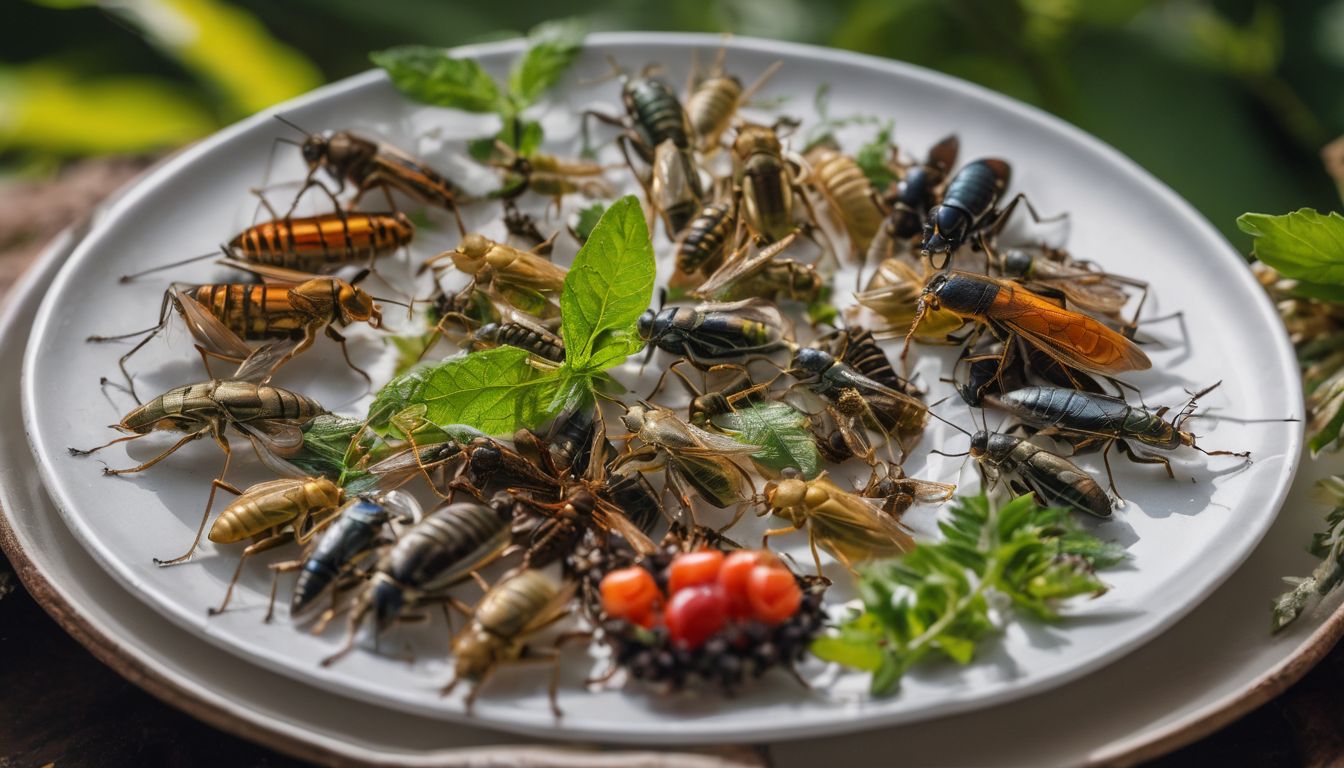In our fast-paced world, many of us rely on quick meals that might not be the best for our health. Processed foods are everywhere, and they’re often packed with hidden sugars, fats, and preservatives.
This article will guide you through understanding these foods’ impacts on your body and provide tips to make healthier choices. Keep reading to boost your wellbeing!
What are Processed Foods?
Processed foods are those that have been altered from their natural state through various methods such as canning, freezing, or adding preservatives. These foods often contain high levels of added sugars, fats, and salt in order to extend shelf life and enhance taste.
Types of food processing
Food processing transforms raw ingredients into convenient food products. It can extend shelf life, enhance flavour, and make foods easier to eat.
- Freezing: This method stops the growth of bacteria by turning water inside the food into ice. It’s widely used for vegetables, fruits, meats and ready-to-eat meals.
- Canning: By sealing the food in airtight containers and heating it to kill harmful microbes, canned goods like soups and vegetables are kept safe for months or years.
- Baking: This process uses dry heat in an oven to cook bread, cakes and pastries. Baking makes carbs more digestible and gives these foods their unique textures.
- Drying or Dehydrating: Removing moisture from food preserves it and concentrates flavours; think dried fruits, jerkies, or herbs.
- Smoking: Food is exposed to smoke from burning materials to impart flavour while also preserving it; smoked fish and meats are traditional favourites.
- Pickling: Soaking foods in solutions like vinegar creates an acidic environment that prevents spoilage. Pickles and other pickled vegetables are common examples.
- Fermenting: Beneficial bacteria or yeasts convert sugars into acids or alcohol. Products like yogurt, kimchi, and sauerkraut rely on this processext heading “Definition of processed foods” discusses how we categorise these transformed items in our diet.
Definition of processed foods
Processed foods are any food items that have been altered from their natural state through steps like freezing, canning, baking, or adding preservatives and other substances. These foods often come in packages and can include ready-to-eat meals, snacks, and sugary drinks.
Processed foods typically contain high levels of sugar, salt, unhealthy fats, and food additives to enhance flavour and prolong shelf life. Examples include tinned fruits with added syrup, packaged biscuits and cakes with artificial ingredients, and microwaveable dinners with high sodium content.
Ultra-processed foods take processing a step further by using industrial techniques to create food-like substances from refined ingredients such as hydrogenated oils or chemically altered starches.
The Health Risks of Consuming Processed Foods
Consuming processed foods can lead to weight gain, an increased risk of type 2 diabetes, nutrient deficiencies, low fibre intake, and the consumption of trans fats.
Weight gain
Processed foods often contain high levels of added sugars, unhealthy fats, and refined carbohydrates that contribute to weight gain. These ingredients are linked to increased calorie intake and can lead to overeating, promoting obesity and related health issues such as hypertension and type 2 diabetes.
Consuming processed foods regularly can disrupt the body’s natural appetite regulation system, making it difficult to maintain a healthy weight. Making informed choices about food consumption is crucial in supporting overall health.
– Increased risk of type 2 diabetes
Increased risk of type 2 diabetes
Consuming processed foods regularly increases the risk of developing type 2 diabetes. Processed foods often contain high levels of sugars, unhealthy fats and refined carbohydrates, all of which can lead to insulin resistance and an increased likelihood of developing the condition.
Longitudinal studies have shown a direct link between frequent consumption of processed foods and the onset of type 2 diabetes, making it crucial to limit intake for better health.
Moving on to “Nutrient deficiencies” in relation to processed foods..
Nutrient deficiencies
Processed foods often lack essential nutrients such as vitamins, minerals, and fiber. This can lead to deficiencies in crucial elements like iron, calcium, and vitamin D. These deficiencies have a direct impact on overall health and can contribute to issues like weakened bone density, anemia, and compromised immune function.
To counteract nutrient deficiencies associated with processed foods it’s important to focus on incorporating whole, unprocessed foods into your diet. Choosing fresh fruits and vegetables along with lean proteins will help ensure you are getting the necessary nutrients for optimal health.
Moving on from the adverse effects of processed food consumption on nutrient levels we’ll discuss “Low fibre intake”.
Low fibre intake
Low fibre intake can lead to digestive issues and an increased risk of chronic diseases. It is important to choose whole, unprocessed foods such as fruits, vegetables, and whole grains to ensure an adequate intake of fibre.
Including legumes and nuts in your diet can also help boost fibre consumption.
Ensuring a sufficient intake of dietary fibre supports overall health and reduces the risk of various noncommunicable diseases. Consider incorporating high-fibre options into your meals to promote better health outcomes.
Trans fats
Moving from low fibre intake to the next concern, trans fats are a type of unsaturated fat that can have detrimental effects on health. These fats are commonly found in processed and fast foods, contributing to an increased risk of heart disease, stroke, and diabetes.
Avoiding products with hydrogenated oils and partially hydrogenated vegetable oils can help reduce trans fat intake and promote better heart health.
Manufacturers add trans fats to improve the texture and shelf life of products; however, they offer no nutritional benefits but instead raise “bad” cholesterol levels while lowering “good” cholesterol levels.
The Impact of Ultra-Processed Foods on Health
Ultra-processed foods have been linked to a high risk of obesity, hypertension, as well as breast and colorectal cancer. This blog will explore the specific health impacts of consuming these types of processed foods in detail.
High risk of obesity
Ultra-processed foods contribute to a high risk of obesity due to their excessive amounts of added sugars, unhealthy fats, and refined carbohydrates. These foods are often nutrient-poor, leading individuals to consume more calories than needed while not meeting their essential nutrient requirements.
The easy access and affordability of ultra-processed foods further exacerbate the likelihood of overconsumption, perpetuating the obesity epidemic in many communities.
Consuming a diet high in ultra-processed foods has been linked to metabolic disturbances and increased fat storage in the body. Additionally, these products tend to be low in fiber and high in calories, which can lead to an imbalance between energy intake and expenditure, ultimately contributing to weight gain and an elevated risk of obesity-related health conditions.
Hypertension
Ultra-processed foods, high in salt, sugar, and unhealthy fats, contribute to the development of hypertension. Such foods often contain excessive sodium levels which can lead to elevated blood pressure.
Processed meats and snacks are also major culprits in raising blood pressure due to their high sodium content. Furthermore, these types of foods tend to be low in essential nutrients like potassium and magnesium – both crucial for regulating healthy blood pressure.
Consuming a diet rich in whole grains, fruits, vegetables, lean proteins and healthy fats can help reduce the risk of developing hypertension. Avoiding processed and ultra-processed food products is key as they have been linked to increased blood pressure levels that can lead to serious health complications over time.
Breast and colorectal cancer
Consuming ultra-processed foods has been linked to an increased risk of breast and colorectal cancer. These foods often contain high levels of additives, preservatives, and unhealthy fats that can contribute to the development of cancerous cells in the body.
Limiting the intake of these highly processed products and opting for whole, unprocessed foods can significantly reduce the risk of developing these types of cancer.
Processed foods are known to contain harmful substances such as acrylamide, a chemical formed when certain starchy foods are cooked at high temperatures. This compound has been associated with an elevated risk of developing various cancers, including breast and colorectal cancer.
How to Minimise the Consumption of Processed Foods
To minimise the consumption of processed foods, it is essential to read food labels, cook from scratch using whole ingredients, and choose whole, unprocessed foods. By being mindful of these choices, you can reduce your intake of unhealthy processed foods and improve your overall health.
Reading food labels
Understanding food labels is crucial for making informed decisions about the products we consume. When scanning food labels, look out for keywords such as “ultra-processed,” “trans fats,” and “added sugars.” Familiarise yourself with serving sizes and nutritional information to gauge the overall healthiness of a product.
Be mindful of misleading packaging claims and opt for foods with minimal artificial additives or preservatives.
Being able to decipher food labels enables us to make healthier choices that contribute positively towards our well-being. By reading food labels diligently, we empower ourselves to avoid harmful substances while supporting our preference for whole, unprocessed foods.
Cooking from scratch
Cooking from scratch allows you to have full control over the ingredients you use, helping you avoid highly processed and unhealthy additives. By preparing meals at home, using fresh and whole foods, you can reduce your intake of trans fats, excessive sugars, and artificial preservatives commonly found in pre-prepared and ultra-processed foods.
Additionally, cooking from scratch gives you the opportunity to support local farmers by purchasing fresh produce that is not only healthier for you but also better for the environment.
Opting for homemade meals means less reliance on heavily packaged convenience foods. This reduces your carbon footprint by cutting down on the amount of plastic waste generated through prepackaged meals or takeout containers.
Choosing whole, unprocessed foods
Opt for whole, unprocessed foods to support both your health and the environment. These foods, such as fruits, vegetables, whole grains, and legumes, are free from artificial additives and preservatives.
By selecting these natural options, you can help reduce packaging waste and lower the carbon footprint associated with food production.
Selecting whole, unprocessed foods allows you to avoid toxic fumes released during food processing while promoting healthier eating habits. Consuming these items provides essential nutrients that can contribute to decreased disease risk and improved overall well-being without relying on unhealthy ultraprocessed alternatives.
Conclusion and Final Thoughts
In conclusion, processed foods can contribute to weight gain and increase the risk of type 2 diabetes. Ultra-processed foods are linked to a higher risk of obesity and hypertension.
Minimising consumption by reading food labels and choosing whole, unprocessed foods can positively impact health. Cooking from scratch allows for greater control over ingredients and nutritional value.
Making informed choices about the food we consume is essential for maintaining overall health and well-being.
FAQs
1. What are processed foods?
Processed foods are items that have been changed from their natural state, often for convenience or to last longer.
2. Can eating processed foods affect my health?
Yes, frequently eating processed foods can impact your health and may lead to weight gain and other health issues.
3. Do processed foods contain many nutrients?
Many processed foods have fewer nutrients than whole, unprocessed foods.
4. Why do processed foods taste so good?
Processed foods often taste good because they have added flavors, sugar, and salt.
5. Should I avoid all types of processed food?
Not all processed food is bad; some can be part of a balanced diet but try to choose less-processed options when possible.





